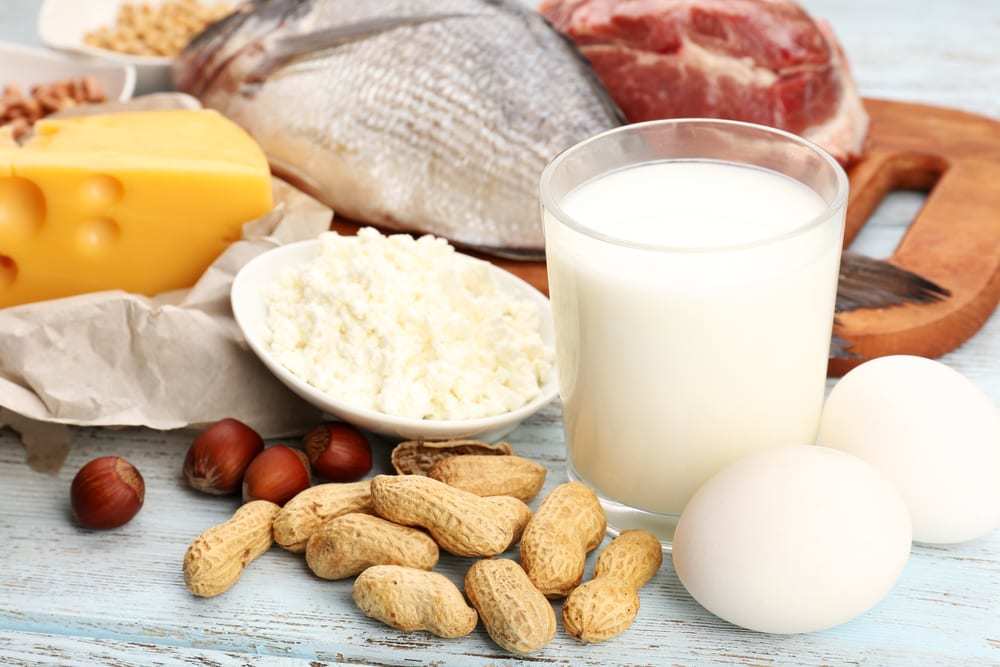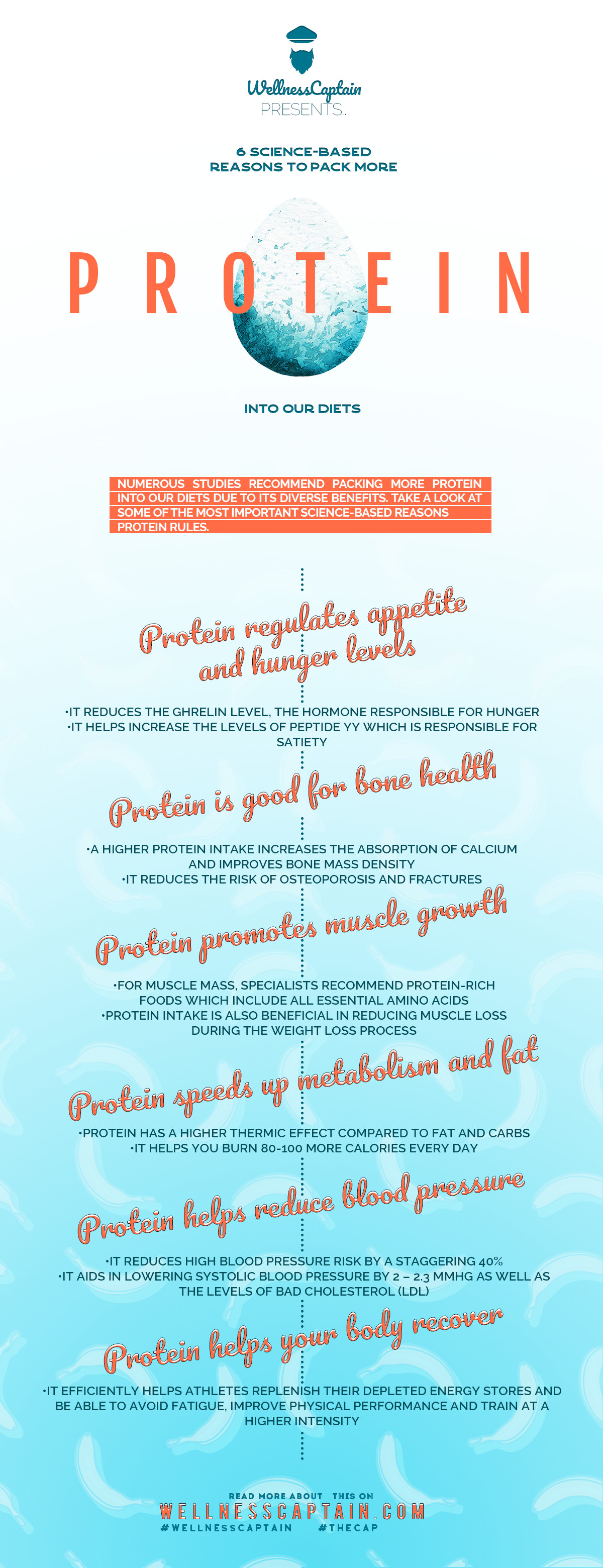6 Science-Based Reasons to Pack More Protein into Our Diets

Every macronutrient, be it carbohydrate, fat or protein, represents a source of energy that contributes to our overall health. In recent years, after much controversy and debate over fats and carbs, protein has finally taken the limelight.
Numerous studies recommend packing more protein into our diets due to its diverse benefits. In order to understand why everybody wants a piece of the protein pie, take a look at some of the most important science-based reasons protein rules.
 Protein regulates appetite and hunger levels
Protein regulates appetite and hunger levels
Along with carbs and fats, protein is a macronutrient the body requires to perform important functions. One of the powers of protein is to regulate weight-related hormones. It is particularly efficient when it comes to weight loss, given that it is the most filling macronutrient.
It firstly starts by reducing the ghrelin level, the hormone responsible for hunger. Secondly, it helps increase the levels of peptide YY which is responsible for satiety. Studies showed that 15% more protein could reduce daily calorie intake of overweight individuals by 400 calories.
So, say goodbye to unhealthy cravings and late night snacking!

 Protein is good for bone health
Protein is good for bone health
It was once believed that protein-based diets, such as Atkins, generate bone loss. However, more and more studies show that protein has a positive impact on bone health and strength. Apparently, a higher protein intake increases the absorption of calcium and improves bone mass density.
It reduces the risk of osteoporosis and fractures, especially in the case of women after menopause and older people in general.
 Protein promotes muscle growth
Protein promotes muscle growth
Muscle mass is extremely important for an individual’s long-term health and overall quality of life. And protein is paramount to building that muscle mass and strength.
If you are interested in muscle growth, specialists recommend protein-rich foods which include all essential amino acids. These are the building blocks of protein, supporting the constant building of new cells and tissue, including muscles.
If you are interested in losing weight, studies show that a higher protein intake is also beneficial in reducing muscle loss during the weight loss process.

 Protein speeds up metabolism and fat burning
Protein speeds up metabolism and fat burning
There’s this saying that abs are made in the kitchen. It may sound far fetched, but it’s actually not that far from the truth. What you eat greatly impacts how you look and feel. And if you want to burn some fat, then a higher protein intake is a good way to start.
Protein has a higher thermic effect compared to fat and carbs, with a whopping 20-35% of burned calories. This means you manage to burn 80-100 more calories every day. In the continuous struggle to maintain or lose weight, every calorie counts.
 Protein helps reduce blood pressure
Protein helps reduce blood pressure
High blood pressure affects millions of people worldwide. It is the number one risk factor of strokes, also causing heart attacks, kidney disease.
One of the evidenced ways to reduce such risk by a staggering 40% is by increasing the protein intake. According to studies, a higher protein intake can aid in lowering systolic blood pressure by 2 – 2.3 mmHg as well as the levels of bad cholesterol (LDL).
You can either do this by adding more protein-based foods into your diet or just replace some simple carbs.
 Protein helps your body recover
Protein helps your body recover
Protein is known to speed up recovery and repair of damaged muscle fibers whether it’s from an injury or simply after a workout. Which makes sense, given that proteins are the backbone of cells, with a structural role in their building, replenishment and repair.
A high protein intake has been demonstrated to efficiently help athletes replenish their depleted energy stores and be able to avoid fatigue, improve physical performance and train at a higher intensity. So it’s extremely important to consume the right post-workout foods, high in protein, such as lean meat, eggs, fish.
This article is for informative purposes only. Please consult your doctor or qualified health care provider on any matters related to your health prior to making any changes in your diet.


